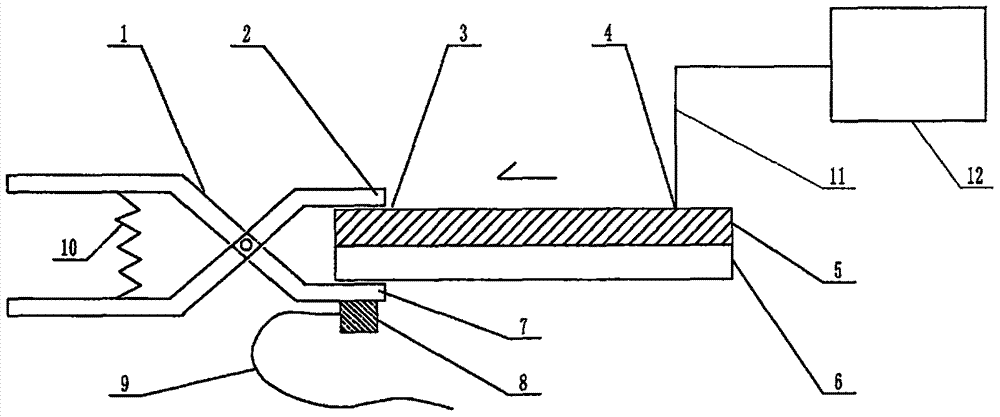15-channel micro-fluidic chip device for common tumor marker screening
A microfluidic chip and tumor marker technology, which is applied in the field of fifteen-channel microfluidic chip devices, can solve the problems of large flow resistance, troublesome operation of inner surface modification of PDMS microchannels, difficulty in passing fine liquid flow, etc.
- Summary
- Abstract
- Description
- Claims
- Application Information
AI Technical Summary
Problems solved by technology
Method used
Image
Examples
Embodiment Construction
[0073] exist figure 1 In the example shown in this case, the main point of this example is that the structure of the device includes a microfluidic chip, and the structure of the microfluidic chip includes a substrate 5 and a cover sheet 6 that are attached to each other and installed together. The base sheet 5 and the cover sheet 6 are both plates or sheets, and the surface of the base sheet 5 facing the cover sheet 6 contains a channel structure formed by a molding process or an etching process, and is mounted on the Together, the substrate 5 and the cover sheet 6 have jointly constructed a microfluidic chip containing a pipe structure, and the structural position of the pipe is located at the junction area where the substrate 5 and the cover sheet 6 are attached to each other. The ports are respectively connected to the sampling port 4 and the terminal 3 of the microfluidic chip, the sampling port 4 is the injection port of the sample solution of the microfluidic chip, and ...
PUM
| Property | Measurement | Unit |
|---|---|---|
| Thickness | aaaaa | aaaaa |
| Diameter | aaaaa | aaaaa |
| Length | aaaaa | aaaaa |
Abstract
Description
Claims
Application Information
 Login to View More
Login to View More - R&D
- Intellectual Property
- Life Sciences
- Materials
- Tech Scout
- Unparalleled Data Quality
- Higher Quality Content
- 60% Fewer Hallucinations
Browse by: Latest US Patents, China's latest patents, Technical Efficacy Thesaurus, Application Domain, Technology Topic, Popular Technical Reports.
© 2025 PatSnap. All rights reserved.Legal|Privacy policy|Modern Slavery Act Transparency Statement|Sitemap|About US| Contact US: help@patsnap.com

